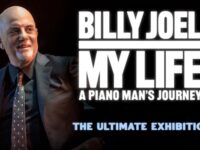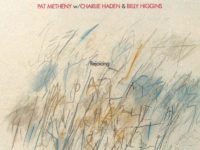Billy Joel’s second Columbia album, and third overall, is among his least-remembered records. It was perhaps inevitable that Streetlife Serenade, the followup to Piano Man, wouldn’t have the same impact as his major label debut – because the earlier platter was such a huge success.
Released on October 11, 1974, Streetlife Serenade might not make any list of Joel’s masterworks, but the album definitely doesn’t deserve its fate of completely falling off the musical radar. Mostly because he’s still presenting himself more as a singer-songwriter rather than the rocker and showman he became during his major hit-making years.
Billy Joel, who hasn’t recorded a new studio album since 1993’s mediocre River of Dreams, has made the most popular songs from Piano Man into perennial concert favorites. “The Ballad of Billy the Kid,” the arena-rock anthem “Captain Jack,” and the title track are also staples of classic-rock radio. What Streetlife Serenade lacks are those kind of songs, the ones that embed themselves in your head for eternity.
Easily the best track on the album is “The Entertainer,” a rock ‘n’ roll commentary about what it’s like dealing with the business side of making records, highlighted by its pointed lyrics about “Piano Man” being edited down to fit on a single. Joel sings, “It was a beautiful song but it ran too long. If you want to have a hit you’ve got to make it fit, so they cut it down to 3:05.” The song was perfect for the stadiums where Billy Joel later performed, but he only belatedly began including it in his set lists.
The upbeat “Los Angelenos” is an observation on the left coast’s biggest town from someone who, at the time, was a transplanted New Yorker. Billy Joel grew up on Long Island, in an area where families had longtime roots. He sounds astonished when he tells us “Los Angelenos all come from elsewhere.” It’s one of the better songs on the LP.
The rest of Streetlife Serenade is filled with decent tunes, the kind that will make you say “that’s nice” when you hear them, but they will immediately disappear from your brain about 10 minutes after you stop listening. Among these are “The Great Suburban Showdown,” “Roberta,” “Weekend Song,” and “Streetlife Serenader.”
The album also suffers in spots because it doesn’t offer the detailed songcraft Joel is known for. There are two instrumentals. Did life on the road prevent him from fully developing “The Mexican Connection” and “Root Beer Rag?” They’re both easy to listen to, but neither is anything more than pleasant filler.
Still, if you haven’t played Streetlife Serenade in a long time, or you have never heard it at all, now is the time to take it out for a test drive. An album doesn’t have to be a classic to be satisfying and, if you’re worn out listening to Billy Joel’s often-overplayed radio hits, this may feel like fresh, new music to you. Remember, minor artwork needs love, too.
- Why I Still Can’t Bring Myself to Mourn Peter Yarrow of Peter Paul and Mary - March 24, 2025
- Louis Armstrong – ‘Louis In London: Live at the BBC’ (2024) - January 17, 2025
- Let ‘South of the Snooty Fox’ Open Your World to Underrated Sterling Harrison - July 8, 2024




